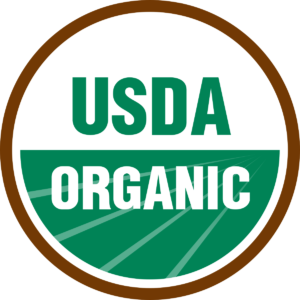 Many consumers don't realize it, but some (many?) of the countries that flood the US market with "organic" foods are actually committing fraud. The so-called organic foods are not organic, but are conventionally grown and the documents saying they are organic have been purchased for a price.
Many consumers don't realize it, but some (many?) of the countries that flood the US market with "organic" foods are actually committing fraud. The so-called organic foods are not organic, but are conventionally grown and the documents saying they are organic have been purchased for a price.
The investigative group Organic Eye that monitors the organic industry, including looking for fraud, has filed a lawsuit about this issue.
Many organic imported foods from places like China, Brazil, and Turkey are actually not organic, and this is why their "organic" foods are so inexpensive compared to foods grown by legitimate organic farmers here in the US. The Washington Post and others have written about the fraud. Buyer beware!
Yes, buy organic foods as much as possible, but try to buy organic foods grown and produced in the US, Canada, the European Union - and also from local farmers.
Excerpts from Organic Eye: Lawsuit Alleges Violation of Federal Law and a Green Light for Fraud - US Family Farmers Competitively Damaged, Consumers Deceived
Eugene, Ore. — When Oregon organic hazelnut grower Bruce Kaser started looking into why organic hazelnut imports from Turkey were priced so low, close to conventional hazelnuts, he found he was pulling on a thread that had the USDA certification of foreign commodities unraveling. His research exposed a systemic, conflict-ridden scandal, and led to the filing of a federal lawsuit on October 17 against the USDA, alleging a breach in the intent of Congress’ Organic Foods Production Act (OFPA).
Kaser, a certified organic farmer and semi-retired attorney, would later team up with well-known organic industry watchdog, Organic Eye. Their inquiry revealed that growers in Turkey and other exporting countries were being allowed to skip the legally-mandated annual inspections, including field inspections and audits of the documentation of all purchased inputs and commodity sales, that are required of growers in the US. The findings are a shock to many US farmers who assume imports, under the USDA accreditation program, are held to the same rigorous and expensive process to ensure their authenticity.
“What has American farmers seeing red is not just the fact that most, probably nearly all, foreign growers are being exempted from annual inspections, one of the vital requirements of organic certification,” said Kaser. “It’s a false representation that ‘group certification’ is supposed to assist small landholders who are part of compact indigenous communities or cooperatives. It’s actually economically aiding large agribusinesses and retailers.”
Kaser first asked the U.S. International Trade Commission to investigate when he learned about cheap organic hazelnuts flooding the US market but couldn’t find any certified Turkish organic growers on the USDA’s “Organic Integrity” database. The USITC found that USDA-accredited certifiers were issuing organic “crops” certificates directly to agribusiness food processors, which made the farmers invisible and untraceable (unlike organic crops produced in the US).
Taking the Trade Commission’s findings, the next step in seeking justice for American organic farmers was filing a formal administrative complaint with the USDA in July 2023. Other than acknowledging receipt, the agency has not responded, which led to the current lawsuit filed in District Court in Oregon.
The potential for fraud is ripe. Some processor/exporters involved in the group certification process in Turkey, a country that has been implicated in large-scale organic fraud in the past, have been traced using geo-tracking to at least one auto repair shop and one gas station. Both the repair shop and filling station were listed in the “Organic Integrity” database maintained by the USDA during the investigation but have since been quietly removed without explanation.
